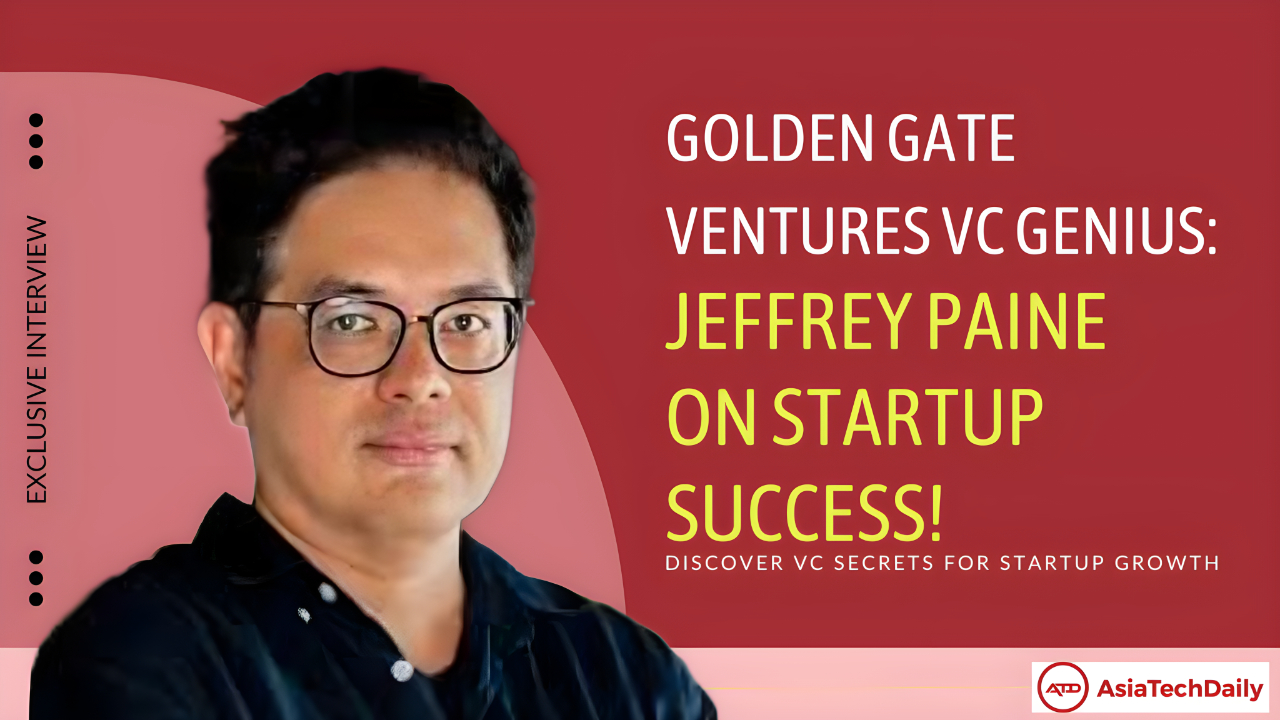AsiaTechDaily – Asia's Leading Tech and Startup Media Platform

How Kobi Marenko, Co-founder And CEO, Arbe Successfully Raised US$55M To Make Autonomous Driving A Reality?
Kobi Marenko, co-founder and CEO, Arbe is a successful entrepreneur with over 15 years of experience in leading technology and media startups from the seed stage to acquisition. Before founding Arbe, Kobi was the Founder and President of Taptica, a mobile DSP acquired by Marimedia, and Founder and CEO of Logia, a mobile content platform acquired by Mandalay Digital. At Arbe, Kobi, and the team work towards making autonomous driving a reality, developing their proprietary imaging radar to provide real-time 4D mapping in high resolution. As the winner of the “Global Technology Innovation” award as well as the “Most Innovative ADAS Technology” award from Tech.AD, Arbe continues to innovate and be at the top of the real-time 4D imaging game.
In an exclusive interview with AsiaTechDaily, Kobi Marenko says:
“My advice is to stay focused and hungry on solving the big problem. Make sure you can explain your differentiation very clearly and simply to anyone who asks. And always play devil’s advocate with your own decisions. Make sure you can prove that you are doing the right thing. Keep questioning yourself.”
Read on to know more about Kobi and his successful journey as an entrepreneur.
Please tell me about your background, and what are you working on currently?
Kobi Marenko: I started my career as a journalist. About 20 years ago, I joined the startup industry, and in the last 16 years, I’ve been an entrepreneur. Since then, I’ve founded three startups – first in telecommunications, then mobile advertising, and now semiconductors.
What motivated you to get started with your company?
Kobi Marenko: After two exits, I wanted to make a real difference and build something big. My partners brought the tech (advanced sensing and 4D radar). I brought us all together with the market-application focus.
How much money (funding) have you raised in total so far? When was the recent funding round?
Kobi Marenko: We’ve raised US$55M so far, including our most recent round (Round B) of US$32M.
How do you decide when to go out for fundraising? What were the internal decision processes in determining when to begin fundraising, and what were the logistics for this?
Kobi Marenko: We determine our future objectives and then assess what level of capital we need to achieve them. We maintain a virtual data room with all relevant information (legal, commercial, financial, etc.) for investors, so we’re never held-up by a lack of data or documentation. This is essential when you’re raising funds, as the time between rounds is never as long as you predict it to be.
How many investors have you met so far, and which among them have invested in your past funding rounds? And how long does it take on average to finalize each funding round?
Kobi Marenko: We’ve met with more than 100 investors. Most of our Round B investors also invested in Round A. It generally takes more than six months to close a round.
How did you meet these investors, and which channels worked best for you?
Kobi Marenko: Canaan Partners was our first investor. I knew them through a personal connection, and they led the seed round. iAngels, who I again met through a personal connection, led the post-seed round and brought the next big investor who led round A. Through the B round, we were introduced to Mission Blue Capital, and Catalyst approached us.
What are the biggest challenges you’ve faced and obstacles in the process of fundraising? If you had to start over, what would you do differently? (Your insight or advice on this would be beneficial for startups)
Kobi Marenko: I would advise startups to raise more money than they think they need in the early stages. It’s amazing how quickly funds dry up. Try your best to raise bigger rounds, so you’re not constantly in fundraising mode.
What are your goals for the next round?
Kobi Marenko: My plan is that our next round will be our last round, and will take us to cash-flow positive.
What are the most common mistakes founders make when they start a company? (or What should all first-time startup founders know before they start their business?)
Kobi Marenko: Oh there are a lot, but here’s what I typically see:
- Not focusing on a problem that is big enough
- Not taking enough mentorship from seasoned entrepreneurs
- Not pivoting on time (when you still have enough cash to pivot)
- Falling in love with an idea and being deaf to market inputs
What do most startups get wrong about marketing?
Kobi Marenko: Here again, there are a lot of places where we go wrong. But from my experience, these are the top 2:
- Going big before achieving product-market fit
- When you do have product-market fit, not devoting enough resources to marketing. You want to look top-notch. You don’t want to look like a bootstrapping startup. Don’t be cheap.
What advice do you have for someone who is interested in doing similar things like yours or in a similar direction?
Kobi Marenko: My advice is to stay focused and hungry on solving the big problem. Make sure you can explain your differentiation very clearly and simply to anyone who asks. And always play devil’s advocate with your own decisions. Make sure you can prove that you are doing the right thing. Keep questioning yourself.
What are the one or two things that you would do differently if you could go back to 10 years ago?
Kobi Marenko: Ten years ago I had a telecom company. We identified the growing smartphone trend and decided to support the non-smartphone industry instead, thinking that our competitors would abandon this market to leave ample opportunity for us. While our competitors did abandon this market, our clients quickly adopted the smartphone too. We eventually pivoted to the smartphone market as well, but we lost money and momentum in the process.
If you identify a trend, go with it. That’s my advice.
You can follow Kobi Marenko here.
Are you looking to secure investment for your startup or a keen startup enthusiast, keep an eye on our interview section.
Follow Asia Tech Daily to know about the innovative startups and how they are revolutionizing the ecosystem.





